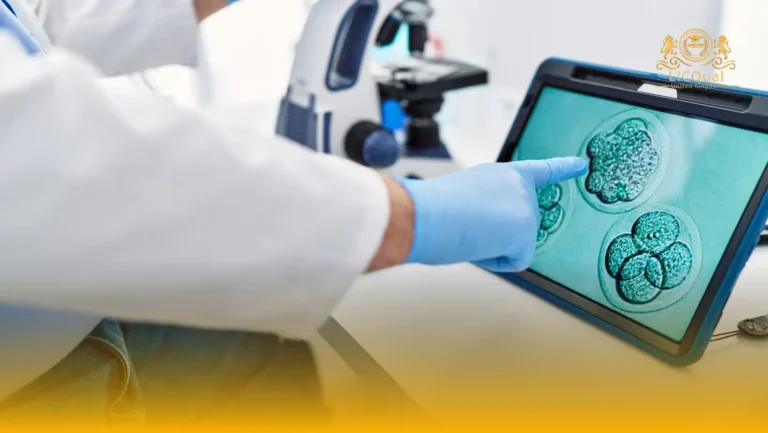The LICQual Level 7 Postgraduate Diploma in Addiction Medicine (PgDAM) is an advanced qualification designed for experienced healthcare professionals seeking to deepen their knowledge and expertise in the prevention, diagnosis, and treatment of substance use disorders. This programme is not intended for fresh candidates but is aimed at learners who wish to enhance their career prospects, expand their clinical skills, and strengthen their Continuing Professional Development (CPD).
Addiction medicine is a complex and evolving field requiring a comprehensive understanding of psychological, physiological, and social factors influencing substance use and dependency. This postgraduate diploma equips learners with advanced knowledge of assessment techniques, treatment modalities, and rehabilitation strategies, enabling them to deliver evidence-based care across diverse healthcare settings. Learners will also develop critical research skills, analytical capabilities, and an understanding of ethical and legal considerations in addiction treatment.
Centres delivering the LICQual Level 7 Postgraduate Diploma in Addiction Medicine must ensure that teaching is provided by competent, highly qualified staff with substantial clinical and academic experience in addiction medicine or related disciplines. Learners should have access to high-quality resources, clinical practice opportunities, and digital learning platforms to support their studies and ensure successful outcomes.
By completing this programme, learners will be equipped to take on senior clinical roles, contribute to multidisciplinary teams, and participate in research or policy development within addiction medicine. This diploma also prepares learners for leadership positions and specialist practice, allowing them to make a meaningful impact in the care, rehabilitation, and management of individuals affected by substance use disorders.
Course Overview
Qualification Title
LICQual Level 7 Postgraduate Diploma in Addiction Medicine (PgDAM)
Total Units
6
Total Credits
120
GLH
600
Qualification #
LICQ2200988
Qualification Specification
To enroll in the LICQual Level 7 Postgraduate Diploma in Addiction Medicine (PgDAM), applicants must meet the following criteria:
|
Qualification# |
Unit Title |
Credits |
GLH |
|---|---|---|---|
|
LICQ2200988-1 |
Advanced Principles of Addiction Medicine |
20 |
100 |
|
LICQ2200988-2 |
Assessment, Diagnosis, and Screening Tools |
20 |
100 |
|
LICQ2200988-3 |
Management and Therapeutic Interventions |
20 |
100 |
|
LICQ2200988-4 |
Co-morbidities and Mental Health in Addiction |
20 |
100 |
|
LICQ2200988-5 |
Research, Evidence-Based Practice, and Clinical Innovation |
20 |
100 |
|
LICQ2200988-6 |
Public Health, Policy, and Prevention Strategies |
20 |
100 |
By the end of this course, learners will be able to:
Unit 1: Advanced Principles of Addiction Medicine
Learners will be able to:
- Critically analyse the biological, psychological, and social mechanisms underlying addiction and substance use disorders.
- Evaluate the neurochemical and behavioural processes that contribute to dependency and relapse.
- Demonstrate advanced understanding of the factors influencing addiction development across populations.
- Apply theoretical knowledge to clinical scenarios for prevention, assessment, and treatment planning.
Unit 2: Assessment, Diagnosis, and Screening Tools
Learners will be able to:
- Apply advanced clinical assessment techniques for identifying substance use disorders.
- Utilise standardised diagnostic criteria, screening instruments, and risk assessment tools effectively.
- Integrate assessment findings to formulate accurate clinical diagnoses.
- Critically appraise the limitations and strengths of different diagnostic approaches in addiction medicine.
Unit 3: Management and Therapeutic Interventions
Learners will be able to:
- Design and implement evidence-based treatment plans incorporating pharmacological and psychological interventions.
- Evaluate therapeutic modalities for relapse prevention, rehabilitation, and long-term recovery.
- Integrate multidisciplinary approaches to improve patient outcomes.
- Adapt interventions to individual patient needs, comorbidities, and social contexts.
Unit 4: Co-morbidities and Mental Health in Addiction
Learners will be able to:
- Analyse the interaction between substance use disorders and co-existing mental health conditions.
- Critically assess the impact of dual diagnosis on treatment strategies and recovery outcomes.
- Apply integrated care approaches for complex cases involving addiction and mental health disorders.
- Evaluate ethical and professional considerations in managing co-morbidities.
Unit 5: Research, Evidence-Based Practice, and Clinical Innovation
Learners will be able to:
- Critically appraise current research and scientific literature in addiction medicine.
- Design, conduct, and evaluate research projects using ethical and methodological rigour.
- Apply evidence-based strategies to clinical decision-making and innovative interventions.
- Translate research findings into practical improvements in patient care and service delivery.
Unit 6: Public Health, Policy, and Prevention Strategies
Learners will be able to:
- Evaluate public health strategies and prevention programmes targeting substance misuse.
- Analyse policy frameworks, global health trends, and community-based approaches in addiction medicine.
- Develop educational and preventive initiatives for at-risk populations.
- Critically assess the role of social, environmental, and cultural factors in substance use prevention.
The LICQual Level 7 Postgraduate Diploma in Addiction Medicine (PgDAM) is designed for healthcare professionals, clinicians, and medical practitioners seeking to specialize in the assessment, treatment, and management of substance use disorders and behavioral addictions. This Level 7 qualification is ideal for those looking to gain internationally recognized credentials, develop practical skills in addiction medicine, and enhance their professional credibility. Whether you work in hospitals, addiction clinics, research, or private practice, this diploma equips you with the knowledge and confidence to excel in the dynamic field of addiction medicine.
Addiction Medicine Specialists and Clinicians
- Designed for specialists managing patients with substance use disorders.
- Enhances skills in pharmacological and behavioral interventions.
- Builds expertise in relapse prevention and harm reduction strategies.
- Strengthens evidence-based clinical decision-making.
- Provides internationally recognized credentials for career advancement.
Psychiatrists and Mental Health Professionals
- Ideal for psychiatrists seeking advanced training in addiction medicine.
- Improves patient assessment and management of co-occurring mental health conditions.
- Enhances knowledge of counseling techniques and therapeutic approaches.
- Builds confidence in developing individualized treatment plans.
- Supports professional growth in hospitals, mental health units, and private practice.
Nurses and Allied Health Professionals
- Suitable for nurses, clinical practitioners, and allied health staff in addiction care.
- Enhances patient monitoring, support, and rehabilitation skills.
- Builds practical skills in intervention planning and patient counseling.
- Develops understanding of ethical, legal, and professional standards.
- Supports continuing professional development (CPD) and clinical competency.
Medical Students and Postgraduate Trainees
- Ideal for graduates pursuing specialization in addiction medicine.
- Provides foundational knowledge in substance use disorders and behavioral addictions.
- Enhances clinical reasoning, patient management, and therapeutic skills.
- Prepares learners for postgraduate training or advanced practice.
- Offers internationally recognized certification to boost career prospects.
Hospital and Clinic Practitioners
- Designed for clinicians working in hospitals, addiction clinics, or rehabilitation centers.
- Enhances patient assessment and treatment planning expertise.
- Builds proficiency in pharmacotherapy, psychological interventions, and relapse prevention.
- Encourages application of best practices in clinical settings.
- Supports professional credibility and career progression in addiction medicine.
Public Health and Research Professionals
- Tailored for professionals involved in public health, epidemiology, or addiction research.
- Improves understanding of population-level substance use trends.
- Builds skills in program development, evaluation, and policy implementation.
- Enhances knowledge of evidence-based interventions and treatment strategies.
- Supports academic research and career growth in addiction medicine.
International Healthcare Professionals
- Perfect for global learners seeking UK-recognized addiction medicine training.
- Offers flexible online learning to balance professional and study commitments.
- Equips learners with skills applicable in international clinical settings.
- Builds credibility in global addiction medicine and healthcare networks.
- Supports career growth and professional advancement worldwide.
Centres delivering the LICQual Level 7 Postgraduate Diploma in Addiction Medicine (PgDAM) must maintain the highest standards to ensure effective learner development and successful outcomes. Essential requirements include:
- Qualified and Experienced Faculty: Centres must employ trainers, assessors, and academic staff with relevant postgraduate qualifications and substantial clinical experience in addiction medicine, mental health, or related healthcare fields.
- Comprehensive Learning Resources: Learners should have access to up-to-date textbooks, journals, case studies, e-learning platforms, and digital tools to support both theoretical and practical learning.
- Clinical and Practical Facilities: Provision of clinical practice environments, simulation facilities, and observational learning opportunities that allow learners to apply advanced knowledge in real-world scenarios.
- Robust Assessment and Quality Assurance: Centres must implement structured assessment processes, internal verification, and quality assurance measures to maintain academic standards and ensure consistent learner outcomes.
- Technology and E-Learning Infrastructure: Reliable digital platforms, virtual classrooms, and online resources should be available to facilitate blended and flexible learning.
- Learner Support Services: Academic mentoring, CPD guidance, and personal support should be provided to ensure learners achieve their full potential.
- Compliance with LICQual Standards: Centres must adhere to LICQual regulations and deliver programmes in line with international Level 7 postgraduate benchmarks.
- Commitment to Research and Innovation: Centres should encourage the integration of research, evidence-based practice, and innovative approaches in addiction medicine.
Assessment and Verification
All units within this qualification are subject to internal assessment by the approved centre and external verification by LICQual. The qualification follows a criterion-referenced assessment approach, ensuring that learners meet all specified learning outcomes.
To achieve a ‘Pass’ in any unit, learners must provide valid, sufficient, and authentic evidence demonstrating their attainment of all learning outcomes and compliance with the prescribed assessment criteria. The Assessor is responsible for evaluating the evidence and determining whether the learner has successfully met the required standards.
Assessors must maintain a clear and comprehensive audit trail, documenting the basis for their assessment decisions to ensure transparency, consistency, and compliance with quality assurance requirements.







